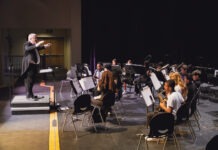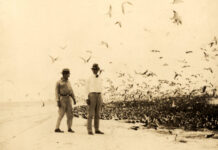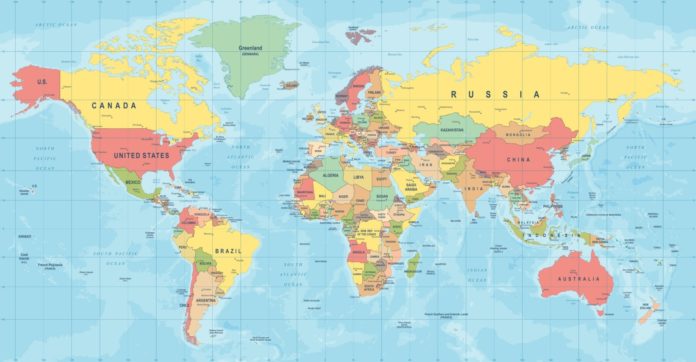It’s easy to get stuck in our own ethnocentric celebrations of familiar holiday festivities, based on our religion, location, upbringing or ancestral traditions.
But let’s not forget that half the kids in the world have no idea who Santa Claus is, and would furrow their brow in confusion at the thought of cutting down a tree and reinstalling it in your living room for a few weeks.
So, let’s quickly circumnavigate the globe and pop in on some other celebrations around the world.
Christmas – Dec. 25 in countries worldwide
Central to the Christianity, Christmas celebrates the birth of Jesus Christ. It is a civil holiday in many of the world’s nations and an integral part of the Christmas and holiday season.
St. Nicholas Eve (Sinterklaas’s Birthday) – Dec. 5, 2022 in Holland
St. Nicholas Eve and Christmas are separate holidays in Holland. Sinterklaas’s birthday is celebrated on Dec. 5. In this tradition, Sinterklaas (who lives in Spain), arrives on a steamboat and rides around town on his white horse while handing out candy to the children. In the evening, families get together and gifts (from Sinterklaas) are exchanged, songs are sung and chocolate letters and ‘pepernoten’ are eaten.
Hanukkah – Dec. 18-26, 2022 in Israel, U.S. & Jewish communities worldwide
Chanukah, which has many different spellings, is the eight-day Jewish holiday that celebrates the rededication of the Holy Temple in Jerusalem after the Maccabees revolted in the 2nd century BCE. The holiday is observed for eight nights and days, and can fall anywhere from late November to late December on the Gregorian calendar.
Rituals include the lighting of a Menorah, which consists of nine candles in a holder. Other Hanukkah family customs include singing Hanukkah songs, reciting Psalms, and, especially in North America and Israel, exchanging presents.
Kwanzaa – Dec. 26 to Jan. 1 – In the U.S., Canada, Caribbean & Western African Diaspora
This is a week-long holiday celebrated in communities in the United States and Canada, as well as in the Western African Diaspora to honor African heritage in African-American culture. Created by Maulana Karenga in 1966, it ends with a feast and the exchange of gifts. Kwanzaa celebrates seven core principles: unity, self-determination, collective work and responsibility, cooperative economics, purpose, creativity and faith. Celebrations can include colorful household decorations with art and African cloth, readings and a candle-lighting ceremony.
Las Posadas – Dec. 16-24, 2022 in Spain, Mexico, Guatemala and parts of the U.S.
Las Posadas (Spanish for “the inns”) commemorates the journey that Joseph and Mary made from Nazareth to Bethlehem in search of a safe refuge where Mary could give birth to the baby Jesus.
With its origins in Spain, Las Posadas is a nine-day celebration now primarily celebrated in Mexico, Guatemala and parts of the Southwestern United States. The roots of this holiday are in Catholicism, but several different branches of Christian Latinos follow the tradition. A procession moves from house to house with a candle inside a paper lampshade, stopping at each home to sing and pray. The celebration ends with caroling, food and pinatas.
Eid-al-Adha – June 28-29, 2022 Muslim in Middle Eastern & Asian Pacific nations
Also referred to as the Feast of the Sacrifice, Eid-al-Adha is an important Islamic holiday celebrated worldwide to honor the willingness of the prophet Abraham to sacrifice his first-born, Ishmael, on God’s command. Its date greatly varies depending on the Islamic lunar calendar.
Families dress in their finest clothing to perform prayer in a large congregation or mosque and sacrifice their best halal domestic animals as a symbol of Abraham’s sacrifice. The meat is shared with friends, neighbors and the poor.
Diwali “Festival of Lights” – Oct. 24, 2022 in India, Nepal, Sri Lanka, Myanmar & others
Diwali is an official holiday in India, Nepal, Sri Lanka, Myanmar and others. The date changes every year. The festival is also referred to as the “festival of lights” and celebrates both the attainment of nirvana by Mahavira (an Indian Sage), as well as a Death Anniversary of Swami Dayanand (Hindu religious leader).
The holiday involves the lighting of small clay lamps to symbolize the victory of good over evil. Fireworks and candy are shared by friends and families.
Boxing Day – Dec. 26 in Great Britain, Canada, Australia & New Zealand
Boxing Day is the holiday on which servants, tradespeople and the poor traditionally were presented with gifts. By the 21st century it had become a day associated with shopping and sporting events.
Chinese New Year – Jan. 22, 2023
Chinese New Year, also known as the Lunar New Year, marks each new year with a different Chinese zodiac animal. The holiday is celebrated to commemorate a new year of good fortune and happiness.
St. Lucia Day – Dec. 13, 2022 in Scandinavia and Italy
St. Lucia Day, also called St. Lucy Day, is a festival of lights most widely celebrated in Scandinavia and Italy. St. Lucia brought food and aid to Christians hiding in the Roman catacombs, wearing a candlelit wreath on her head to light her way and leave her hands free to carry as much food as possible. Today, throughout Europe, families celebrate with a procession of children dressed in white, carrying candles.
Three Kings Day – Jan. 6 in Mexico and countries worldwide
Three Kings Day celebrates the Three Kings (Melchior, Caspar, and Balthasar) and their visit to baby Jesus after his birth.
Today, people from countries all over the world celebrate this day. In Mexico, children are told to leave their shoes by the door of their house so the three kings can visit and leave them presents.
Winter Solstice – Dec. 21, 2022
The Winter solstice marks the official start to winter, when the Sun reaches the Tropic of Capricorn. In the Northern Hemisphere, it is the shortest day and longest night. The Winter solstice has played an important role in cultures worldwide since ancient times. The Pagan celebration of Winter Solstice (also known as Yule) is one of the oldest winter celebrations in the world. It is traditionally celebrated as a symbol of the changing seasons and of the Earth’s rebirth and is believed to hold a powerful energy for regeneration, renewal and self-reflection.




















